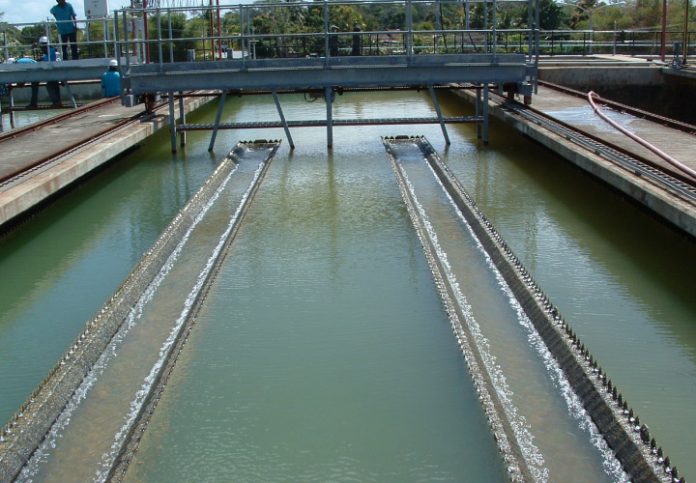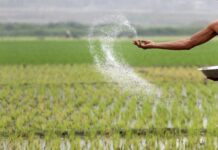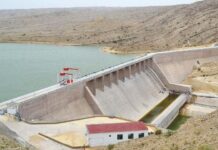
ISLAMABAD: Water woes from the Kharif season are set to impact the upcoming Rabi season, with the country set to brace a 45 percent shortage of water which would affect agricultural yield and economic output.
According to an initial analysis of data, it is projected water shortfall would stand between 35-45 percent during the upcoming Rabi season 2018-19, the Indus River System Authority (Irsa) apprised the Senate Special Committee on Water Scarcity on Thursday, reports Dawn.
The committee meeting chaired by Senator Maula Bux Chandio was apprised Tarbela Dam had attained maximum conservation level of 1,150 feet and current temperatures in the catchment areas presently were promising.
This signifies the depletion for irrigation during present Kharif season would mostly remain curbed.
Also, the committee was apprised the overall storage capacity in reservoirs presently stood around 9.255 million-acre feet (MAF), 32.4 percent less of its full capacity, which is 13.681 MAF.
In the same period last year, the reserve stood around 12.08 MAF, almost 24 percent lower.
Furthermore, the panel was told about the current water shortage and Secretary Water Resources Shumail Ahmed Khwaja stated the country was losing almost 50 percent of its overall water capacity and bemoaned infrastructure worth billions of dollars had been established by the federal government.
But the failure of provinces to match these efforts had made it useless.
Providing examples in this regard, Mr Khawaja said Darawat Dam in Jamshoro, Katchhi Kanal in Southern Punjab and Balochistan and a small dam in Khyber Pakhtunkhwa where only 5-6 pc of foreseen benefits could be realized.
An investment of Rs80 billion was made to build Katchhi Kanal for the irrigation of 713,000 acres of land, however because of failure of both provincial governments to develop facilities from which 10,000 acres of land got irrigated.
Secretary Water Resources said it was crucial for Pakistan to ensure completion of projects at the federal and provincial level.
Mr Khawaja said overall water resources available in Pakistan was 138 MAF having a storage capacity of 13.7MAF, 10 percent of the available water resource.
The country’s maximum water storage capacity stood at 35-36 days, which was way less in comparison to other nations across the globe where water reserves could be held for 130 days.
He added India’s storage could last for around 320 days.
Furthermore, the secretary told since water was a devolved subject, all provinces were equally responsible for undertaking corrective steps.
To develop a consensus on this problem, four sessions were with all chief ministers were held under the aegis of Council of Common Interest (CCI) and an agreement was reached on National Water Policy.
Also, Mr Khawaja urged the need for water conservation and stated 90-95 percent of the country’s water was being utilized for irrigation and 50 percent got lost during canal diversion, besides the construction of dams.
He added all the stakeholders had reached a consensus under the NWP to conserve around 33 percent of this water by 2030 with minimal cost.






